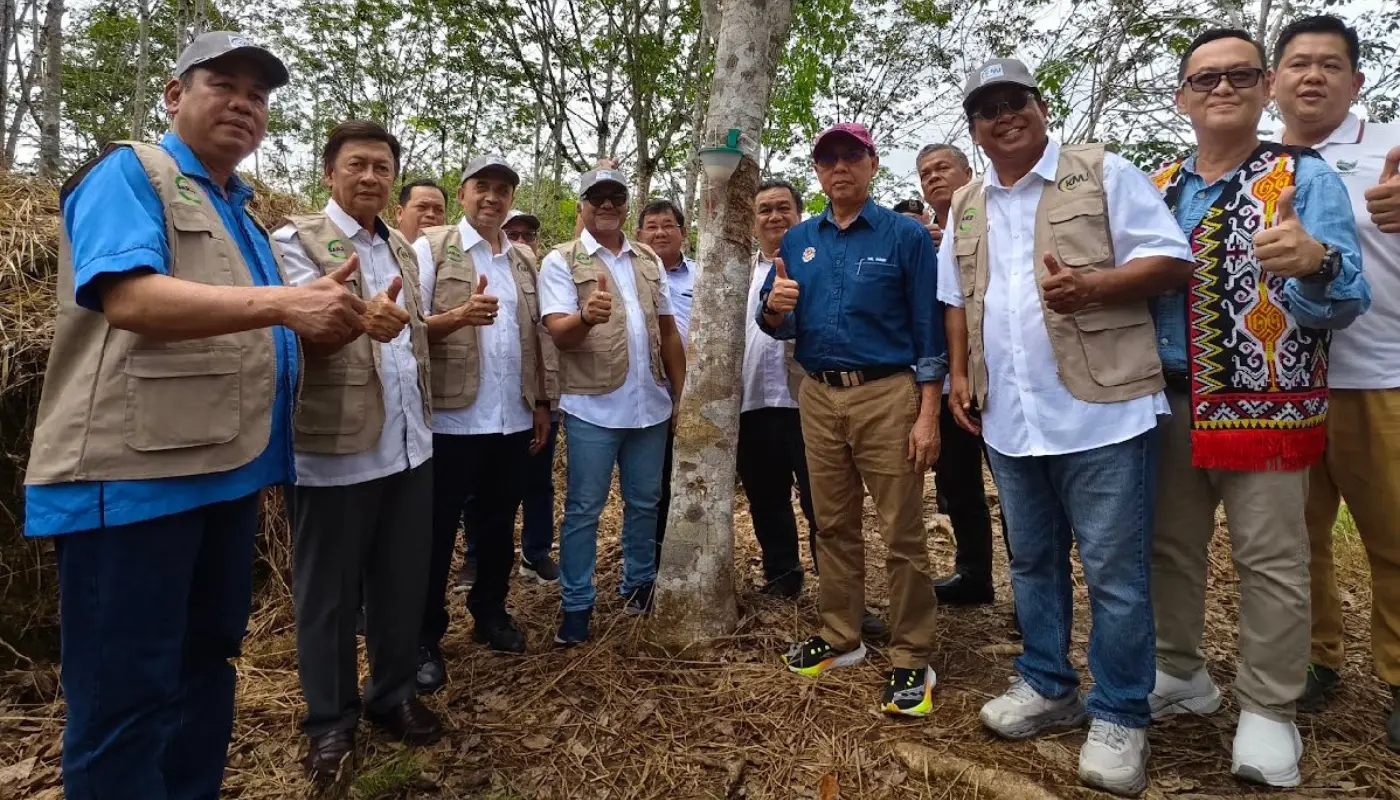SELANGAU – The rubber sector in Sarawak is undergoing a significant modernisation drive with the introduction of a more efficient and viable tapping technique.
This innovation aims to bolster production yields and enhance the competitiveness of smallholder farmers.
Dato Sri Dr. Stephen Rundi Utom, the Minister of Food Industry, Commodities and Regional Development, stated that the new ‘punching’ method enables more consistent latex production.
A key advantage is its reduced susceptibility to weather disruptions, allowing for a more reliable harvesting schedule.
He explained that this initiative represents a strategic move by the state government to revitalise an industry currently grappling with labour shortages and a shift in grower interest towards other crops, notably oil palm.
The modern technique is positioned as a way to make rubber cultivation more attractive and profitable.
The minister elaborated that tappers employing this system are not constrained by rainy conditions. They can tap twice-weekly, achieving a higher yield of superior quality latex compared to traditional methods.
With many rubber cultivators transitioning to oil palm plantations, this new approach offers a compelling reason to remain in the rubber industry.
It promises a good income with less labour-intensive effort, addressing a primary concern for farmers.
He was speaking at the launch of the Sarawak Rubber Industry Transformation Project and the Strengthening of the Nanga Skuau Community Rubber Project at the Nanga Skuau Hall on Tuesday.
In a significant announcement, Dato Sri Dr. Stephen Rundi also revealed the formation of the Sarawak Rubber Industry Board (SARIB).
This new body will be tasked with devising strategies to strengthen the sector, steering it towards sustainability and greater competitiveness.
He highlighted that Sarawak possesses over 161,000 hectares of land under rubber cultivation. If fully and efficiently utilised, this area holds immense potential to become a major contributor to the state’s economy.
A central goal is to position rubber as a primary income source for rural communities, particularly those within the B40 income bracket.
This ambition aligns with the broader objectives of the Post COVID-19 Development Strategy 2030 (PCDS 2030), which aims for Sarawak households to achieve a monthly income of at least RM15,000.
The minister further stressed the critical role of technology and comprehensive training in developing a highly skilled workforce. This is seen as essential for transforming modern agriculture into a lucrative profession.
He called for a shift in mindset, advocating for the adoption of new technologies and the training of workers at all levels.
He also encouraged the younger generation to see themselves not just as job seekers, but as creators of income-generating opportunities, particularly within the agricultural sector.
The event was attended by several dignitaries, including Deputy Minister of M-Ficord Datuk Martin Ben and Tamin State Assemblyman Ir. Christopher Gira Sambang.






